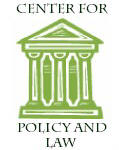|
New IRmep book now available!

on Twitter!
Audio




|
America's Middle
East Policy Think Tanks:
What Went Wrong?
US Think Tanks and the Crisis of Confidence
America's Middle East foreign policy think tanks are experiencing a monumental crisis
of confidence. Citizens and the news media are clamoring for ever more information and
insight into the region. However, think tank luminaries formerly hailed as Iraq or Middle
East policy experts on broadcast news networks suddenly have few answers. Many have simply
fled the media circuit. With think tank research frameworks backing America's new
preemptive military strategy increasingly resembling a hopeless dot-com fantasy, the
process of American foreign policy formulation itself is facing increased scrutiny. As
Americans look nervously at postwar Iraq, looming confrontations with Syria and Iran, and
staggering Israeli-Palestinian peace process, never before has solid, credible and
relevant research about the region been so desperately needed.
IRMEP has identified three core failures of America's foreign policy think tanks:
research funding that is too highly concentrated, lack of peer review by credible,
knowledgeable and independent outsiders; and highly reactive, tactically driven research
agendas with little strategic focus. Adequately addressing these shortcomings will improve
the quality of think tank research and contribute to future US foreign policy success in
the region.
Dangerous Concentration: Middle East Policy Research Funding
The following provides a snapshot of donor concentration levels. (Exhibit 1)
Exhibit 1: Funding Concentration: Top Three Donors
(Internal Revenue Service and IRMEP 2003)

Exhibit 1 includes data from IRS 990 forms filed by the American
Enterprise Institute (AEI) Hudson Institute, Jewish Institute for National Security
Affairs (JINSA), Washington Institute
for Near East Policy (WINEP), Middle East Media Research Institute (MEMRI), Middle
East Forum (MEF), and the Institute for Advanced Strategic and Political Studies (IASPS).
Building trust and a “glass wall” between large customers (donors) and
analysts is now indispensable for research organizations, from Wall Street to
Massachusetts Avenue. IRMEP recommends that the top three donors of any policy research
institute fund no more than 2% of any trailing four year public donations. Breadth,
rather than depth, of funding generates credibility that the research represents broader
interests rather than those of a small handful of anonymous financial backers. The
Institute for Advanced Strategic and Political Studies (IASPS), with offices in Washington
D.C. and Jerusalem, though not technically an American think tank, writes extensively
about “American interests”. However, with only three donors providing 24% of
trailing four year income, IASPS is the most poorly positioned of the group. IASPS should
immediately strive to correct this by raising funds from a much larger universe of
supporters.
The Middle East Media Research Institute (MEMRI) faces similar challenges.
Although MEMRI influences US policy by targeted distribution of selectively translated
news to policy makers, it could have more impact with a commercial subscription based news
service business model. This would allow MEMRI to charge a fee to each news
recipient and thus translate a much broader range of Middle East news. The discipline of
the market would also reveal whether MEMRI's recipients value the material MEMRI
selects for translation. In the year 2000, three donors accounted for over 58% of
MEMRI's income.
While the larger Brookings Institution and American Enterprise Institute do not file
separate IRS forms for their Middle East research centers, they too should carefully
monitor for unhealthy levels of funding concentration. From a cash flow
standpoint, heavy reliance on huge gifts from a single entrepreneur at the Brookings Saban
Center may leave it without the more stable cash flow and credibility a more broadly based
membership can generate.
Independent Peer Review: The Crucible of Quality
Pre-publication critical review by outside peers is essential for leading academic
publishers such as Harvard Business School Publishing and specialist scientific journals.
Although even established authors spend many extra hours performing additional research to
cover the inevitable gaps revealed in the process, in the end peer review provides a
reliable crucible for forging new ideas.
In spite of academic references to their researchers as “scholars” and
“fellows”, the Brookings Institution and American Enterprise Institute function
more like “black boxes” with self referential feedback loops. The lack
of robust review by readily available outside experts has caused a steady but marked
erosion in the quality and value of their research. In arenas as complex and volatile as
the Middle East, lack of consultation with a range of outside subject area experts who
have done primary research in academia, the diplomatic ranks and the business world in
foreign countries becomes glaringly obvious when policies are actually put into practice
only to fail.
IRMEP recommends that Middle East policy think tanks routinely
circulate their research for review by at least 100 independent outside specialists before
publishing and promoting policy in the name of “American interests”. Major
policy works should undergo at least 500 independent reviews. Though painful and time
consuming, the quality improvements justify the delays and costs.
The Research Agenda: Focus on the Important, not just the Urgent
American Middle East think tank research agendas have become overly reactive and focused
on urgencies of the moment. Although research examining the tactics of terrorism and
tactics of defense are valued, deeper research addressing the more important core causes
and solutions remains to be done. IRMEP suggests the following “mid
course” correction to think tanks that wish to elevate their relevance over the
medium term.
Exhibit #2
Current and Suggested Research Agenda
(Source: IRMEP 2003)
Current Research |
Suggested Research |
Tactics of Terror |
Causes of Terror. Long term strategic solutions. |
|
|
Arab Islamism |
Arab Islamism and American Zionism |
|
|
Reconstruction Opportunities in Iraq |
Development, Trade and Business
Opportunities in the Arab Middle East |
|
|
Circumventing the UN |
Productive US
engagement with existing NGOs, NGO performance improvement |
|
|
Summary
By addressing their own shortcomings, American foreign policy think tanks may once again
stride the high ground of credibility and relevance. Focusing on the “big three”
issues is a first step although improvements in recruitment, hiring, workforce diversity
and board composition must also be made. Although painful, the implementation of
diversified funding strategies, peer review, and improved research agendas will help
American policy research again become effective, relevant and useful for policymakers and
the American people. |

 Sign
up for IRmep's periodic email bulletins!
Sign
up for IRmep's periodic email bulletins! Sign
up for IRmep's periodic email bulletins!
Sign
up for IRmep's periodic email bulletins!